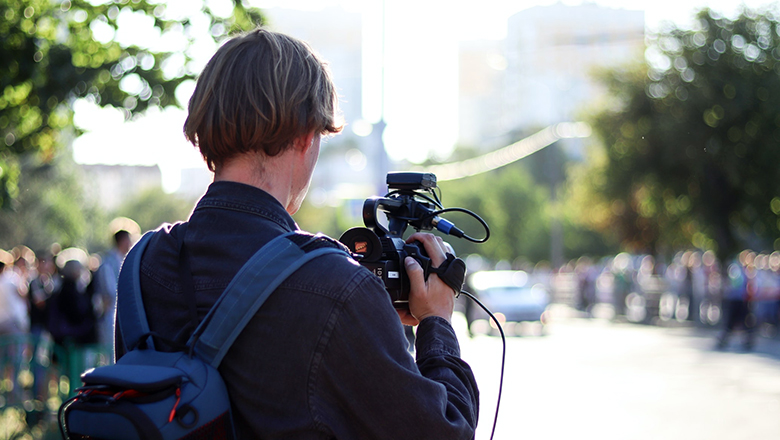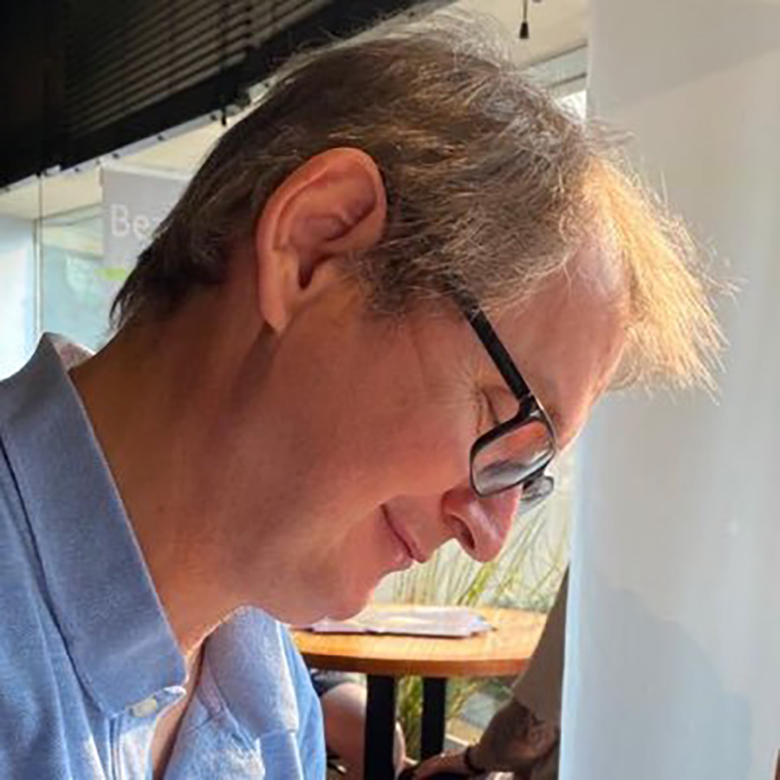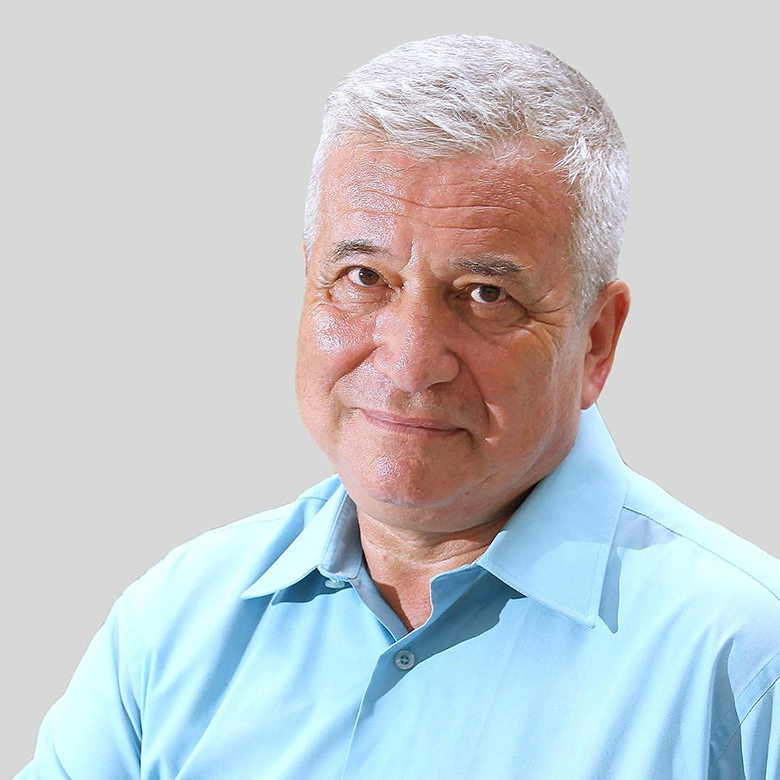Hong Kong journalism has come to the worst time. Is it a right decision for foreign correspondent to stay in this city?
After writing the story, the first thing that Matthew Brooker, a middle-aged foreign journalist, done was not sent it to his boss but to provide the story to the legal department and have a read before publishing it.
The foreign correspondent who has been working in Hong Kong since 1992, Brooker is still getting used to this new rule that has been imposed by the publication since the National Security Law was established.
“This has completely changed my working pattern and increased the workload in ensuring everything goes well,” said Brooker. “Changing into a new working model is not a simple thing, especially since I have been doing it for over 30 years.”
Press freedom in Hong Kong has become a major concern internationally in recent years. It is no surprise to read from the news that famously known journalists were being arrested or being sued and that a publication was being shut down. The commonalities of these journalists and publications are that they are pro-democracy.
Government suppression of press freedom makes journalists aware of their safety and rights in reporting social issues. Once journalists were becoming a target of the government, Steve Vines, a middle aged experienced foreign correspondent who had been working in Hong Kong for 35 years, has made up his mind to step back from the journalist’s role and leave the city after claiming that the Chinese central government has repeatedly undermined Hong Kong’s autonomy since 1997.
As a well-known foreign correspondent who has worked for The Observer in various positions, once served as the president of the Foreign Correspondents’ Club and hosted The Pulse, a current affairs TV program on RTHK.
His announcement of leaving after The Pulse was terminated in July 2021 shocked many people and raised the awareness of the impact of deteriorating press freedom to those foreign correspondents who had experienced the change of journalism in Hong Kong since the colonial government.
Vines wore a disappointed face said, “Loving Hong Kong has become a suspect activity, and this is not the Hong Kong that I used to know.”
Brooker sighed and said, “When I first arrived in Hong Kong, I felt that this place had a high autonomy of freedom in terms of speech and press until a year ago.”
During the colonial government period, Hong Kong was a desirable location for foreign publications to set up an office or send correspondents to work in the city, as it had good access to China and other Asian countries. When it came to the time of handover back to China in 1997, worries on press freedom of Hong Kong had been raised because no one knew how the Chinese government was going to respond to the journalism of the city,
To ease the worries of the freedom of speech and press, the Chinese government promised that Hong Kong would be ruled under ‘One Country, Two Systems’ and everything would be remained unchanged for 50 years.
Brooker said, “Press freedom seemed to be guaranteed in the first 15 years. Most publications could still maintain an objective stance in reporting the social issues and news involving official parties.
“Although the majority of local publications started to lean on pro-government side, independent pro-democracy publications appeared as an online format and became a trend. This showed to the international community that the government still respected press freedom and foreign correspondents felt comfortable working in the city,” said Brooker.
The Umbrella movement in 2014 was a turning point of press freedom in Hong Kong. Local television broadcast, TVB, has self-censored on the report of a video clip showing seven police officers were kicking a demonstrator clearly. This had raised the question of press freedom in Hong Kong and the awareness of self-censorship.
Vine commented, “The decision made on TVB in changing the commentary of the video has alarmed journalists in Hong Kong, making them fear that the government was controlling on their work. Management level in the media companies noticed that if they still wanted to survive in the market, appeasing the government and self-censorship would be needed.”
While most of the public believes that the turning point of press freedom was the Umbrella movement, Matthew thinks that since Xi Jinping became the leader of the Chinese Communist Party, the government tightened its control on the freedom of Hong Kong journalism.
Foreign correspondents did not have a direct influence at that time, despite most of the local publications becoming a mouthpiece of the government and pro-democracy publication becoming the target of the Chief Executive of the time. To avoid making headlines internationally, the government has shown less care for the foreign press than the local press during the early stage of the anti-extradition movement.
“After the report anti-extradition movement in 2019 has aroused international attention and the establishment of the National Security Law in 2020, it has been demonstrated that the government has intervened in press freedom in Hong Kong – not only on the local journalists but also on foreign correspondents,” said Brooker.
“An Indonesian correspondent lost an eye when a rubber bullet was fired at her dangerously close range by a police officer while reporting in the protest even though she had shown her identity,” Brooker said. “Foreign correspondents had to leave Hong Kong because of visa issues after the National Security Law raised whether the city was still favourable for a free press.”
Foreign correspondents’ visa issues tarnished Hong Kong’s image and had a deleterious effect on the reputation of Hong Kong’s freedom of the press. The vague content of the National Security Law has brought uncertainties for foreign correspondents working in the city. Foreign publication, such as The Financial Times, relocated their staff from Hong Kong to Seoul and overseas publications stopped locating reporters in this city.
Vine explained, “The most unsettling thing, and deliberately so, is the uncertainty that hovers over anyone engaged in literally any kind of public activity. No one knows quite what is allowed and what is forbidden.
“There is a genuine fear of the knock on the door in the early hours of the morning by National Security Law.”
With the National Security Law, foreign correspondents have to be aware of their wording in reporting social issues even though the government said there would not have much change in foreign press in Hong Kong.
Although the government does not give a direct order to foreign publications to have a change, many publications have implemented a new policy to avoid infringing the National Security Law. Brooker felt that the pressure of having a change is not directly from the local government but the result of the local pro-democracy journalist.
Under tighten control of the Chinese government, Vine believed that one particular group of the correspondent is hugely affected.
“For foreign correspondents that covering in politics and diplomatic news, one of the challenges is it becomes harder for them to get in touch with government officials,” Vine said.
As the foreign correspondent’s freedom in Hong Kong started decreasing, it has brought up the question about their safety in this city. Brooker believes that compared to Mainland China, Hong Kong has a higher autonomy of freedom and respect for journalists.
“Foreign correspondents in the mainland are being thrown into jail without reason or have gone missing with no one knowing where they have been,” says Brooker. “At least in Hong Kong, journalists still get the medium to tell the story and communicate with the outside world about the truth.
“Indeed, I am not sure how long this freedom will be maintained as I cannot see a positive future of journalism and sense that it will get worse in Hong Kong. The only possibility that the situation can be changed is that one day the Chinese government is not ruled by the communist party,” said Brooker.
Even though the current atmosphere in Hong Kong journalism is not favourable to every journalist reporting in the city, Vine and Brooker have different decisions on their future career.
Unlike Vine chooses to leave, Brooker has established a strong sense of belongings in the city by creating his own family. The support from his family over the tough time becomes his motivation to stay in Hong Kong.
“This is home for me,” said Brooker. “I do not want to leave this place at the moment.”


